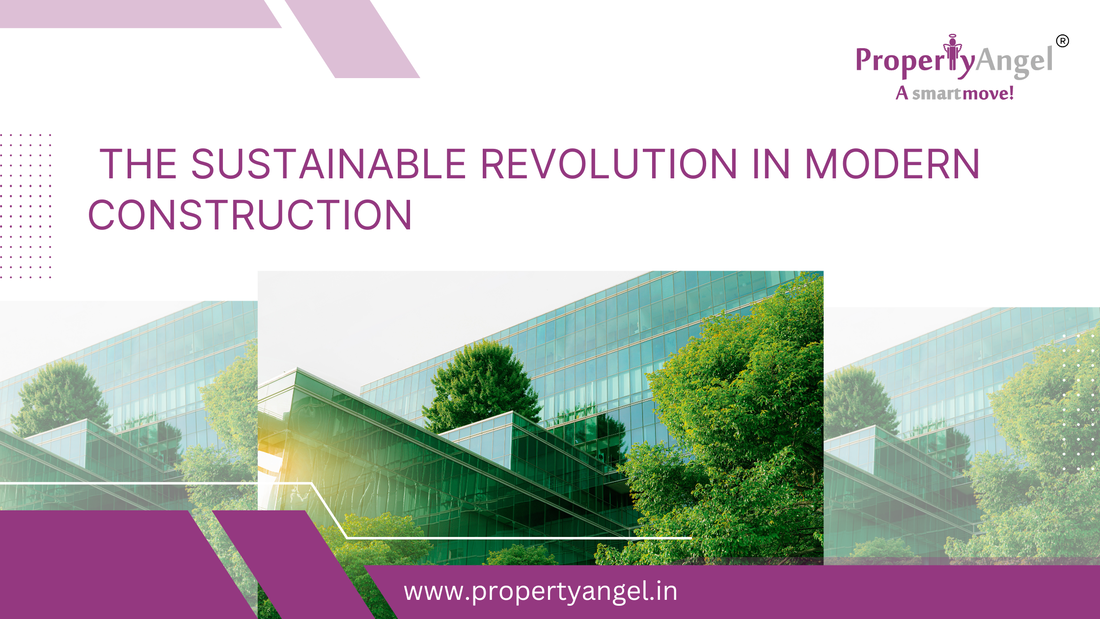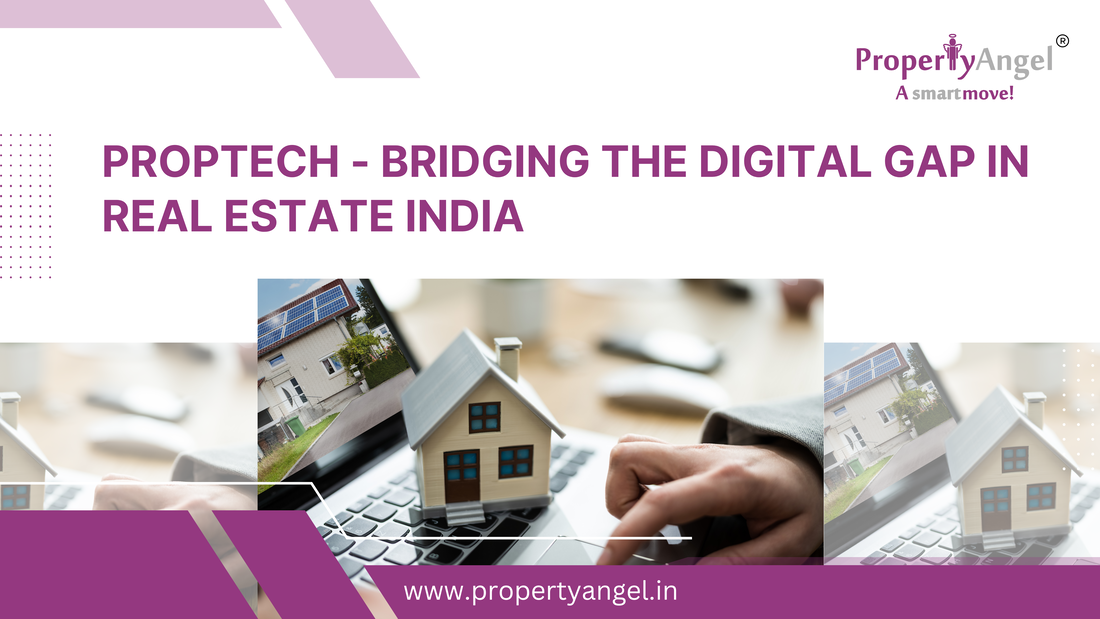|
It can be challenging for both landlords and tenants to navigate the complexities of rental agreements. A rental agreement is a legally binding document that outlines the terms and conditions of a rental property, ensuring that both parties understand their rights and responsibilities. Whether you're a landlord looking to protect your investment or a tenant seeking a secure living arrangement, understanding the key clauses within these contracts is crucial for a smooth rental experience. Key Clauses in Rental Agreements 1. Rent and Deposit The rent clause specifies the monthly rental amount, payment due date, and mode of payment. The security deposit, often equivalent to several months’ rent, should also be clearly stated. This clause protects landlords by securing funds for potential damages, while tenants should ensure that the terms for the return of the deposit are fair and transparent. 2. Lease Term, Renewal, and Rent Escalation The lease term defines the duration of the agreement. It's essential to include details about renewal options, notice periods for termination, and conditions under which the lease can be extended. Rent escalation clauses outline how and when the rent can be increased during the lease term, which could be based on a fixed percentage or tied to inflation indices. Clear terms regarding lease duration, renewal, and rent increases help tenants plan their finances and prevent unexpected hikes, providing stability for both parties. 3. Maintenance and Repairs Responsibilities for maintenance and repairs should be outlined explicitly. Typically, landlords handle structural repairs and major systems, while tenants are responsible for minor maintenance and keeping the property clean. Clearly defining these responsibilities ensures that maintenance issues are promptly addressed, keeping properties in top condition and reducing tenant turnover. 4. Subletting The subletting clause dictates whether the tenant can sublet the property to another party. Landlords often prefer to restrict subletting to maintain control over who occupies their property. This clause should also include the conditions under which subletting is allowed, if at all. 5. Termination Clause The termination clause outlines the conditions under which the lease can be ended by either party. This includes notice periods, penalties for early termination, and conditions for reclaiming the property. A well-drafted termination clause provides a clear exit strategy and protects against abrupt disruptions. 6. Pet Policy The pet policy clause specifies whether pets are allowed on the premises. If pets are permitted, the clause should detail any restrictions on the type, size, and number of pets. This is crucial for maintaining the property’s condition and ensuring that tenants are aware of any additional responsibilities or fees. 7. Utilities and Other Charges This clause clarifies who is responsible for paying utility bills such as electricity, water, gas, and internet. It also includes other charges like maintenance fees or parking fees. Transparent utility clauses prevent misunderstandings and ensure that all costs are accounted for. 8. Schedule of Property The schedule of property clause provides a detailed description of the property, including its dimensions, layout, and inventory of fixtures and fittings. This clause ensures that both landlords and tenants have a clear understanding of the property’s condition at the start of the lease, which helps in avoiding disputes over damages or missing items when the lease ends. Conclusion Understanding these key clauses is essential for a smooth and conflict-free rental experience. Whether you are a landlord or tenant, being informed about your rights and responsibilities helps in maintaining a positive relationship. For more insights on property management and real estate trends, visit PropertyAngel.in or tune into the PropertyAngel podcast. About PropertyAngel PropertyAngel is a premier property management company based in Bangalore, offering professional management for individual apartments, houses, and villas. They provide end-to-end solutions that ensure your property is well-maintained and your tenants are satisfied. Contact PropertyAngel at (91-7406484455) to learn more about their services. Explore their property management services and experience the peace of mind that comes with expert management.
1 Comment
Bangalore, often referred to as the Silicon Valley of India, is renowned for its booming tech industry and vibrant lifestyle. Amidst the city's dynamic environment, a selection of luxury apartments stands out, offering unparalleled comfort, exquisite design, and a wide range of top-notch amenities. Whether you desire breathtaking city views, proximity to lush green spaces, or state-of-the-art facilities, Bangalore’s luxury real estate market has it all. Here's a curated list of the top 10 luxury apartments in Bangalore that redefine opulent living. 1. Prestige Kingfisher Towers Luxury Apartments, Lavelle Road Prestige Kingfisher Towers on Lavelle Road is synonymous with luxury. Spanning 4.11 acres and housing 81 exclusive units, these ready-to-move 4 BHK apartments, each covering a lavish 8321 sq.ft. (773.05 sq.m), offer panoramic views of the city. With expansive apartments offering panoramic views of the city and Cubbon Park, this residence is designed for those who desire the best. Launched in October 2012 and completed in December 2018, the residences come with a price tag of ₹31.50 Cr, reflecting their prime location and top-notch amenities. 2. Sobha HRC Pristine Luxury Apartments, Jakkuru Sobha HRC Pristine in Jakkuru is a tranquil retreat spread over 7.61 acres with 395 units. These luxury apartments are surrounded by lush greenery and water bodies, providing a serene environment. Offering a range of 2, 3, and 4 BHK apartments and row houses, these homes vary from 1459 to 4112 sq.ft. (135.55 to 382.02 sq.m). Ready for possession as of April 2023, the price range starts at ₹1.64 Cr and goes up to ₹4.62 Cr. Launched in November 2017, this project is ideal for those seeking a serene environment without compromising on luxury. 3. Tata Promont Luxury Apartments, Banashankari In Banashankari, Tata Promont offers luxurious living spaces spread across 14.50 acres with 312 units. These 3 and 4 BHK apartments, ranging from 2376 to 3205 sq.ft. (220.74 to 297.75 sq.m), were launched in August 2013 and became ready-to-move in December 2017. These luxury residences are designed to provide the utmost privacy and exclusivity. With prices ranging from ₹2.13 Cr to ₹2.88 Cr, Tata Promont is perfect for those who value privacy and stunning city views. 4. Phoenix One Luxury Apartments, Bangalore West Phoenix One, located in Bangalore West, is an ongoing project covering 17 acres with 900 units. Offering 2.5, 3, and 4 BHK apartments that range from 1761 to 3069 sq.ft. (163.6 to 285.12 sq.m), these homes promise a modern lifestyle with possession slated for November 2024. Residents enjoy access to an array of amenities, including a swimming pool, fitness center, and landscaped gardens, making Phoenix One an ideal choice for urban dwellers who crave luxury. Prices range between ₹4.01 Cr and ₹7.68 Cr. Launched in July 2017, Phoenix One combines contemporary design with extensive amenities. 5. Salarpuria Sattva Luxuria Salarpuria Sattva Luxuria in a prime area of Bangalore offers ready-to-move apartments and penthouses. Spanning 4 acres, this project includes 197 units of 3 and 4 BHK apartments, ranging from 2215 to 4465 sq.ft. (205.78 to 414.81 sq.m). The prime location ensures easy access to the city's best shopping, dining, and entertainment options. Launched in June 2011 and completed in August 2017, these residences are priced between ₹3.65 Cr and ₹8.55 Cr, offering an elegant and superior quality living experience. 6. RMZ Latitude RMZ Latitude, situated in Hebbal, stands out with its exclusive 4 BHK apartments and penthouses. Covering 3.92 acres, this ready-to-move project houses 122 units with sizes ranging from 3895 to 6600 sq.ft. (361.86 to 613.16 sq.m). RMZ Latitude promises a serene yet sophisticated lifestyle for its residents. Launched in April 2012 and completed in September 2017, prices range from ₹5.90 Cr to ₹10 Cr, providing a serene yet sophisticated lifestyle amidst lush green surroundings. 7. Embassy One Four Seasons – Upscale Living Embassy One Four Seasons epitomizes upscale living in Bangalore. Situated on 6.50 acres, this exclusive development features 109 luxurious units offering 3 and 4 BHK apartments ranging from 3456 to 5870 sq.ft. (321.07 to 545.34 sq.m). Ready-to-move since June 2019, these residences boast a contemporary design with panoramic city views. Launched in July 2017, prices start from ₹12.44 Cr and go up to ₹19.37 Cr, catering to discerning individuals seeking sophistication and comfort in every detail. 8. Embassy Lake Terraces Embassy Lake Terraces, located near Hebbal Lake, offers luxurious apartments with stunning views and top-notch amenities. Spread over 14.50 acres, this project includes 469 units of 3, 4, and 5 BHK apartments, ranging from 3689 to 9156 sq.ft. (342.72 to 850.62 sq.m). These sky-high residences provide stunning views of the lake and the city skyline. Launched in July 2017 and ready for possession since March 2023, prices range from ₹5.78 Cr to ₹22 Cr, catering to those who seek tranquility and urban sophistication. 9. Prestige Leela Residences Inspired by the opulence of Leela Palaces, Prestige Leela Residences offers luxurious 4 BHK apartments. Spanning 3 acres with 88 units, these residences range from 2920 to 3626 sq.ft. (271.28 to 336.87 sq.m). Located in close proximity to Bangalore's central business district, these luxury apartments feature grand interiors, spacious layouts, and a plethora of amenities. Launched in February 2016 and ready for possession since November 2020, prices range from ₹7.50 Cr to ₹9.31 Cr, promising an extraordinary living experience with grand interiors and lush gardens. 10. SOBHA Insignia – Bespoke Luxury Apartments in Bengaluru SOBHA Insignia in Bellandur epitomizes bespoke luxury. This limited-edition project covers 0.98 acres with 33 units of 3 and 4 BHK apartments, ranging from 2377 to 3406 sq.ft. (220.83 to 316.43 sq.m). With premium fittings, spacious layouts, and a range of amenities including a clubhouse and swimming pool, SOBHA Insignia is designed for those who seek the finest in life. Launched in September 2022, possession is expected by March 2026. Prices range from ₹3.67 Cr to ₹5.25 Cr, catering to those who seek the finest in life. Conclusion The trend in Bangalore’s luxury real estate market is increasingly leaning towards apartments with scenic lake views, offering a serene living environment with a picturesque backdrop. If you are considering investing in one of these opulent residences, it is crucial to have a reliable property management service. Our expert team at PropertyAngel offers comprehensive services to ensure your property is well-maintained, providing you with peace of mind and maximizing your investment. Explore our services today and experience the best of luxury living in Bangalore. For further information checkout our podcast on Sustainable living to gain more insightful knowledge. There our special guest Mr. Sriram Kuchimanchi shares his expertise on sustainable water management practices and innovative technologies. Join us as we discuss how collective action and forward-thinking strategies can pave the way for a resilient water future in Bengaluru and beyond! About PropertyAngel PropertyAngel is a leading O2O (online-to-offline) second landlord platform. We are a Bangalore-based property management company offering professional property management for individual apartments, houses, and villas. If you need assistance in managing your property effectively in Bangalore, please contact us at (91-7406484455). Are you looking to diversify your investment portfolio? Do you want to explore new avenues in real estate investment? If so, you might be intrigued by the growth of Small and Medium REITs (SM REITs) in the Indian market. In this article, we'll examine what SM REITs are all about, how they differ from traditional REITs, and what investors need to consider before diving into this promising yet relatively unknown investment option. Understanding SM REITs SM REITs, or Small and Medium Real Estate Investment Trusts, are a younger version of the traditional REITs that have long been a staple in the investment landscape. Like their counterparts, SM REITs own a portfolio of real estate properties, collecting rental income from these properties and distributing it to investors as dividends. However, there are some key differences that set SM REITs apart:
To understand how SM REITs operate, let's walk through the step-by-step process:
While SM REITs present exciting opportunities for investors, it's essential to approach them with caution:
For further information checkout our podcast on REITs to gain more insightful knowledge. There our special guest Dr. Harshul Savla discussed what REITs are and how they stand out among other investment options. About PropertyAngel PropertyAngel is a leading O2O (online-to-offline) second landlord platform. We are a Bangalore-based property management company offering professional property management for individual apartments, houses, and villas. If you need assistance in managing your property effectively in Bangalore, please contact us at (91-7406484455). The decision holds significant weight when it comes to entrusting your rental properties to a rental management service in Bangalore. From tenant management to property maintenance, the right choice can enhance your profits and grant you peace of mind, while the wrong one can diminish returns and add stress. In this comprehensive guide, we'll walk you through the process of selecting the ideal rental management service after you've identified your investment market. Let's break it down into five essential steps: Step 1: Compile a List of Rental Management Services Kickstart your search by compiling a list of rental management services operating in Bangalore. Utilize search engines like Google to discover a plethora of options. Additionally, leverage online forums and resources that provide curated lists of rental management services in the area. Step 2: Refine Your Selection Narrow down your list to three to five top contenders. Look for market leaders with a robust presence and a proven track record of managing numerous properties. While personalized service might seem appealing, prioritize reliability and established systems over individual attention. Consider factors such as property management software usage, professional websites, and property listings when refining your selection. Step 3: Conduct Interviews Reach out to your finalists via email to schedule informative phone calls. Prepare questions covering crucial aspects such as company background, fee structures, maintenance procedures, rent collection methods, and tenant screening processes. Use this opportunity to gauge the rental management service's expertise and compatibility with your investment goals. Step 4: Make an Informed Decision Based on the insights gathered from the interviews, make a well-informed decision. Review the Property Management Agreement (PMA) thoroughly to ensure alignment with the discussed terms, particularly regarding fees. Upon signing the PMA, your chosen rental management service will facilitate the onboarding process, granting you access to online accounts and assigning a dedicated point of contact. Step 5: Validate Your Choice Monitor the performance of your rental management service closely during the initial months of collaboration. Assess whether they fulfill their commitments, provide timely responses, and deliver transparent financial statements. Address any concerns promptly through open communication, allowing room for improvement. While minor hiccups are common initially, persistent issues or red flags may necessitate reconsidering your choice of rental management service. In Conclusion Selecting the right rental management service in Bangalore is pivotal for the success of your investment portfolio. By prioritizing competence, professionalism, and reliability, you can optimize your bottom line and ensure a seamless rental management experience. For further insights, visit our website to explore PropertyAngel's comprehensive rental management services. About PropertyAngel PropertyAngel is a leading O2O (online-to-offline) second landlord platform. We are a Bangalore-based property management company offering professional property management for individual apartments, houses, and villas. If you need assistance in managing your property effectively in Bangalore, please contact us at (91-7406484455). Fractional property ownership (FPO) is a concept gaining popularity in the Indian real estate market, offering a unique way for individuals to invest in high-value properties. This blog aims to examine the core of fractional ownership, discuss its advantages and disadvantages, highlight key players in the field, explore turnover and return on investments, and draw comparisons with other investment avenues like Real Estate Investment Trusts (REITs) and Alternative Investment Funds (AIFs).
Let’s understand Fractional Property Ownership (FPO) Fractional property ownership involves multiple investors collectively owning a portion of a high-value real estate. In India, this model is gaining traction as it allows investors to enter the real estate market with a smaller capital outlay while enjoying the benefits of property ownership. Advantages of Fractional Property Ownership
Disadvantages of Fractional Property Ownership
Turnover and Return on Investments: Fractional property ownership platforms typically provide regular updates on property performance. Investors can expect returns through rental income and potential appreciation in property value. However, it's essential to consider the long-term nature of real estate investments. Comparison with REITs and AIFs: FPO v/s REITs
FPO v/s AIFs
Conclusion Fractional property ownership in India provides a new way for people with less money to invest in real estate. It has benefits like less financial stress and spreading out investments. But, it's crucial to be careful because there are also potential downsides. Before choosing fractional ownership, investors should think about their risk tolerance and goals. It's good to compare it with other options like REITs and AIFs. As real estate changes, fractional ownership is expected to become more important in how Indians invest in property. About PropertyAngel PropertyAngel is a leading O2O (online-to-offline) second landlord platform. We are a Bangalore-based property management company offering professional property management for individual apartments, houses, and villas. If you need assistance in managing your property effectively in Bangalore, please contact us at (91-7406484455). In the ever-evolving landscape of construction, the need for sustainability has become the headline. The choices we make in building materials and design not only shape the physical structures around us but also play a significant role in preserving our planet. In this edition, we will explore all about sustainable construction.
The foundation of sustainable construction lies in the materials we use. Making use of materials like recycled steel, recycled wood, and energy-efficient insulation transforms homes into eco-friendly life spaces. These cool materials not only enhance structural integrity but also contribute to a greener future. As we embrace these innovations, future homes are set to combine both environmental consciousness and an aesthetic appeal. Imagine a building that breathes in harmony with nature, regulating its temperature through inspired design. Architects and engineers are increasingly turning to bioclimatic principles, creating spaces that stay cool without the need to depend on traditional air conditioning systems. From the usage of green roofs that absorb sunlight to well-planned ventilation channels inspired by nature, this idea explores how these nature-inspired solutions are not only making buildings more comfortable but also significantly building up energy efficiency. A global challenge that demands innovative solutions is the scarcity of water. Progressive projects are taking a significant step in the right direction by integrating water recycling technology. Treating and reusing sewage water not only contributes to water conservation but also establishes an eco-friendly approach to building design. Recycling used water helps sustainable construction meet the pressing need for water resource management. Moving on to the ROI of investing on a sustainable project. Green building practices offer not only ecological benefits but also a compelling return on investment . Green buildings, designed with energy efficiency, recycled materials, and sustainable systems in mind, demonstrate a lower environmental impact over their lifecycle. Beyond environmental safety, these buildings often cut down the cost through reduced energy consumption, water conservation, improved indoor air quality, etc. The long-term financial gains, along with the positive environmental impact, make green building investments a wise choice. To propel construction into a more sustainable future, new visions and ideas are essential. We believe in the power of shared knowledge and collective action. As you explore the possibilities of sustainable construction through this newsletter, we encourage you to take a moment and listen to our podcast that decodes eco-friendly constructional practices in real estate in India from one of the experts himself, Suhail Rahman, MD & CEO of CoEvolve Estates, leading developer in Bangalore specializing in sustainable designs. Guided by his innovative vision, the projects undertaken by CoEvolve have won several awards and titles including Asia Pacific's Greenest Residential Project by the World Green Building Council. In the context of the environmental challenges of present-day construction, the call to action is clearly to embrace sustainability. Let every structure be a testament to innovation and a commitment to harmonious coexistence with our planet. Together we can build a sustainable tomorrow. About PropertyAngel PropertyAngel is a leading O2O (online-to-offline) second landlord platform. We are a Bangalore-based property management company offering professional property management for individual apartments, houses, and villas. If you need assistance in managing your property effectively in Bangalore, please contact us at (91-7406484455). India is experiencing a significant demographic shift with its aging population on the rise. As the number of elderly individuals continues to grow, the need for assisted senior living becomes increasingly important, tackling issues such as feeling lonely, not enough health care assistance and less family time. In response to these changes, places that help seniors feel safe, supported, and independent are becoming more common. Recognizing the significance of offering quality care to senior citizens, India is gearing up to meet the demands of its aging population. In reaction to this critical need, businesses and organizations are stepping up to offer a range of services, including assisted living facilities, home care services, and technology-based solutions. These endeavors aim to provide the elderly with the necessary care and support, fostering a sense of independence and well-being. Assisted living facilities in India are at the forefront of this transformation, providing a range of services to improve the physical and mental well-being of elderly individuals.. The specialized services include nursing and medical care, social activities, nutritional support, emergency hospitalization, dining facilities, 24-hour onsite staff, and access to emergency assistance. Furthermore, these facilities prioritize safety and security, ensuring that seniors can remain active, healthy, and connected with their loved ones. Strict security protocols, including CCTV surveillance and visitor screening, contribute to a safe and secure environment. Additionally, emergency response systems are in place to address any medical emergencies promptly. Investing in senior living homes presents a unique opportunity for investors seeking long-term and stable returns. As the needs of the aging population evolve, the demand for enhanced facilities, particularly senior living homes, is on the rise. Beyond financial gains, investing in this sector is a profound act of social responsibility, contributing to the well-being of the elderly. Aligned with a global trend, this investment allows you to be part of a broader movement dedicated to providing high-quality living options for seniors. Joining this endeavor not only ensures sound financial returns but also contributes to creating a positive impact on the lives of the elderly, making it a rewarding and socially conscious investment choice. While the concept of assisted living has been prevalent globally for the past two decades, it is relatively new for India. This paradigm shift in senior care aligns with a broader global trend, emphasizing the importance of providing quality services for elderly citizens. As nations adapt to longer lifespans, businesses and organizations are recognizing the inherent value in prioritizing the well-being of seniors—a trend that holds particular significance for India as its elderly population is poised for rapid growth in the coming years. To know and learn more about this topic, do have a watch the latest podcast episode of PropertyAngel Podcast, in conversation with Mrs. Sumathy Anantharam, Founder of Manasum Senior Living and Mr. Kushal Ramesh, Partner of Manasum Senior Living. Here is the link to the episode https://youtu.be/zccOlhd6aJM?si=xHXto2eEmtRCuwLV About PropertyAngel PropertyAngel is a leading O2O (online-to-offline) second landlord platform. We are a Bangalore-based property management company offering professional property management for individual apartments, houses, and villas. If you need assistance in managing your property effectively in Bangalore, please contact us at (91-7406484455). Welcome to the world of Proptech, where technology meets real estate, reshaping how we buy, sell, and manage properties. In this blog, we'll break down what Proptech is, how it's changing the property industry in India, key innovations and challenges, and what the future holds for professionals and consumers. You can watch our detailed podcast on Proptech here.
What is Proptech? Let's start with the basics: What is 'PropTech'? It's simply the blend of 'property' and 'technology.' PropTech employs technology to make real estate processes more efficient and accessible for both professionals and consumers. Now, let's explore how PropTech is transforming the real estate industry in India. PropTech is revolutionizing the real estate industry by redefining many aspects. 1. Digital Property Search PropTech platforms make it a breeze to find properties online. With websites and apps, property seekers can filter listings based on location, budget, and preferences. Virtual property tours let you explore homes without stepping out. 2. Data-Driven Decisions Proptech provides valuable data and insights for making informed property decisions. Market trends, pricing, and historical data are at your fingertips, making investment choices more informed. 3. Property Management Simplified Property owners and managers benefit from software that streamlines tasks like rent collection and maintenance requests. 4. Smart Homes Properties are getting smarter with technologies like smart thermostats, security systems, and energy-efficient appliances, increasing their appeal and value. 5. Transparent Transactions: Blockchain technology enhances transparency and security in property transactions. It ensures data integrity and trust. 6. Sustainability and Eco-Friendly Tech: PropTech is leading the charge in making properties more eco-friendly and sustainable. Smart technologies such as energy-efficient lighting and water-saving devices are being incorporated, contributing to a greener living experience. 7. Cost Savings: From construction to maintenance, PropTech optimizes costs. Innovative building materials, energy-efficient systems, and streamlined maintenance processes lead to significant savings. Innovations and Challenges Innovations:
Challenges:
The Future Awaits What lies ahead for professionals and consumers in India's real estate sector? What is changing in the realm of 'Property technology'? What have been the major innovations, challenges and what are the biggest problems the sector is working on today? Is the sector changing fast enough? Tune in to mind-boggling facts and theories, and delve deep into The Protech revolution in India with John Kuruvilla, who was the chief Mentor of Brigade REAP, India's first and largest PropTech accelerator, for over 6 years, in conversation with the host, Sapna Chandiramani, CEO & Co-founder, PropertyAngel. In his career span of over 3 decades across the Advertising, Real Estate, Hospitality and Aviation industries, John has been a serial entrepreneur, has taken Air Deccan public as its Chief Revenue officer, served as the Managing Director at GenNext ventures by Reliance Industries, turned around many loss making companies, is an avid biker, has lived in the Amazon rainforest and is fondly known as the 'Barter King. You don't want to miss this insightful conversation! Also subscribe to our podcast platforms mentioned below Spotify - https://open.spotify.com/show/67D5E52WPF07VLSxpU3zRc Amazon - https://tinyurl.com/PApodcastamazon Castbox - https://tinyurl.com/PAcastbox RadioPublic - https://radiopublic.com/propertyangel-podcast-6vpLje Pocketcasts - https://pca.st/7w6g2gmk Jio Saavn - https://www.jiosaavn.com/shows/propertyangel-podcast/1/GJyfL-3-xCY_ Google - https://tinyurl.com/propertyangelpodcast Coming soon on Apple Podcasts About PropertyAngel PropertyAngel is a leading O2O (online-to-offline) second landlord platform. We are a Bangalore-based property management company offering professional property management for individual apartments, houses, and villas. If you need assistance in managing your property effectively in Bangalore, please contact us at (91-7406484455). Owning a home is a dream come true for many Indians. Therefore, homeowners aim to create a space that reflects their personality and meets their evolving needs. Renovating and improving your home not only enhances its aesthetics but also adds value to your property. Whether you're planning to sell your home in the future or simply want to enjoy a more comfortable living space, here are some valuable renovation tips for homeowners.
Plan Your Renovation One of the most important renovation tips for homeowners is having a well-thought-out plan. Identify the areas of your home that require attention and prioritise them based on your budget and needs. Consider factors like functionality, aesthetics, and long-term value while making your plan. Budget Wisely If you don't plan and budget wisely, renovation expenses can escalate quickly. Therefore, figure out how much you will spend on the project and allocate funds accordingly. To avoid surprises later on, research the costs of materials, labour, and any additional expenses. It's also a good idea to keep a contingency fund for unexpected expenses. Renovation tips for homeowners: Focus on the Kitchen The kitchen is often considered the heart of an Indian home, and investing in its renovation can immensely boost the value of your property. Homeowners should opt for modern, functional designs that maximise storage space and incorporate energy-efficient appliances. Also, it's best to use high-quality materials like granite or quartz for countertops and durable cabinets with ample storage. Upgrade Bathrooms Upgrading your bathrooms is another renovation project that can add value to your property. Install new fixtures like modern faucets, showerheads, and energy-efficient toilets. Consider adding a glass shower enclosure for a touch of elegance. Pay attention to lighting, ventilation, and storage solutions to create a more functional and relaxing space. Enhance Curb Appeal The exterior of your home is the first thing potential buyers or guests see. Therefore, one of the crucial renovation tips for homeowners is to invest in landscaping, repainting the facade, and replacing outdated or worn-out windows and doors. A well-maintained and visually appealing exterior can make a significant difference in the value and overall impression of your property. Renovation tips for homeowners: Optimise Storage Indians tend to have a lot of belongings, and insufficient storage space can be a major drawback for potential buyers. Therefore, focus on creating smart storage solutions throughout your home. Utilise vertical space by adding shelves or cabinets, and consider built-in storage options to maximise space utilisation. Well-organised closets, kitchen cabinets, and storage rooms are highly desirable features for Indian homeowners. Energy Efficiency Matters Energy-efficient homes are in great demand with rising energy costs and increasing environmental consciousness. Therefore, incorporating energy-saving features like LED lighting, solar panels, energy-efficient windows, and insulation is one of the trending renovation tips for homeowners. These upgrades not only reduce utility bills but also increase the value and appeal of your home. Flooring and Finishes Homeowners must replace worn-out carpets with durable and low-maintenance options like hardwood or tiles. They can also choose neutral colours for walls and finishes to appeal to a wider range of potential buyers. To ensure longevity and easy maintenance, homeowners must use high-quality materials. Hire Professionals While DIY projects can be fun and cost-effective, certain home improvement projects require professional expertise. Hiring experienced contractors, architects, or interior designers will make sure your home renovation is successful. Besides, professionals can provide valuable insights, guide you through the whole process, and help you avoid costly mistakes. Stay Updated with Trends Keeping up with the latest home design and renovation trends can help you make informed decisions and add value to your property. Browse home improvement magazines, websites, and social media platforms for inspiration. However, remember to choose timeless design elements that will retain their appeal for years to come. Final Words Overall, renovating and improving your home is an excellent way to add value and enhance your living experience as a homeowner. By carefully planning, budgeting, and focusing on key areas, you can create a space that not only reflects your style but also appeals to potential buyers. With the right approach and attention to detail, your home can become a valuable asset that brings joy and financial returns. About PropertyAngel PropertyAngel is a leading O2O (online-to-offline) second landlord platform. We are a Bangalore-based property management company offering professional property management for individual apartments, houses, and villas. If you need assistance in managing your property effectively in Bangalore, please contact us at (91-7406484455). India is rich in diversity and cultural heritage. The country's economy is also growing rapidly. As the economy grows, so does the real estate market, especially luxury real estate in India. The year 2022 saw a significant increase in the sales of luxury homes, which shows how popular these exclusive properties have become. Because many households now have more spending power, wealthy buyers are looking for luxury properties that offer a high level of comfort and prestige. This has created a higher demand for extravagant homes and has led to the development of high-end properties in some of the most desirable locations in India. Unlike other markets, luxury real estate in India caters to a specific group of buyers who are looking for exclusivity and high-end amenities. These buyers are willing to pay a premium for these features but also want to ensure they are getting good value for their money. Who are Elite Homebuyers? Typically, people buy homes to fulfill their basic need for a place to live. However, elite homebuyers have different preferences. These HNIs prioritise luxury, exclusivity, and privacy in their homes. Therefore, they look for houses with state-of-the-art amenities and innovative designs, preferably located in prime areas. Elite homebuyers have a sophisticated taste for high-end features and aesthetics. They desire properties that suit their lifestyle and provide a peaceful retreat from the busy city life. The lifestyle of elite homebuyers heavily influences their tastes. Therefore, they look for properties that provide private swimming pools, home theatres, gyms, and other high-end features. Also, elite homebuyers favour modern and contemporary designs that let in plenty of natural light and offer breathtaking views. Trends in Luxury Real Estate in India Luxury real estate in India is always evolving to meet the demands of wealthy homebuyers. Two of the latest trends in this sector are smart homes and eco-friendly designs. With smart homes, homeowners can use voice commands or remote access to control various aspects of their homes. They can control the lighting, temperature, and security systems from anywhere in the world. Another trend is the growing preference for eco-friendly designs. People are increasingly concerned about the environment and want homes that have minimal impact on nature. Developers are incorporating features like solar panels, rainwater harvesting systems, and energy-efficient appliances into their designs. These green features help reduce energy consumption and promote sustainability. Apart from these trends, luxury vacation homes and second homes are also gaining popularity. Wealthy individuals are investing in properties located in scenic locations like hills, beaches, backwaters, etc. These vacation homes offer a tranquil retreat and are great venues for family vacations. Popular Luxury Real Estate Destinations in India Mumbai, Delhi, Bangalore, and Pune are among the most sought-after cities in India for luxury property investments. These cities offer a cosmopolitan lifestyle with a bustling social scene, vibrant culture, amazing employment opportunities, and excellent infrastructure. They have top-tier educational institutions, world-class hospitals, big MNCs, convenient transportation options, and prominent shopping centers. For example, high-end properties in Mumbai offer breathtaking Arabian Sea views. Delhi is home to some of the most luxurious residences in upscale neighborhoods. Bangalore is known for its lush greenery and offers luxury homes in peaceful surroundings. Pune is an emerging city that offers an impressive range of luxury real estate options. Luxury Real Estate in India: Investment Opportunities Investing in luxury real estate in India can be a profitable opportunity. However, investors should carefully look into certain factors before making their investment decisions. One of the most crucial factors is the property's location. Prime areas, which elite homebuyers prefer, offer higher potential for returns. These locations usually have good connectivity, proximity to central business districts, and access to upscale shopping and dining experiences. In Mumbai, areas like Bandra West, Juhu, and Worli are popular choices for luxury real estate investments. Chanakyapuri, Lutyens' Delhi, and Vasant Vihar are highly sought-after in Delhi. Indiranagar, Koramangala, and Whitefield are also emerging as preferred luxury home destinations in Bangalore. In Pune, Hadapsar, Baner, Aundh, Wakad, and Wagholi are particularly sought-after by investors looking for a luxurious lifestyle. Conclusion Investors should also look into the developer's reputation and overall market trends. Researching the developer's track record, past projects, and customer reviews helps assess their quality and credibility. Market trends, such as the demand-supply gap, pricing, and rental yields, provide insights into potential returns on investment. Builders and developers targeting high-end homebuyers in India must cater to their distinctive preferences, emphasizing smart technology, home automation, and eco-friendly designs. Staying competitive requires the incorporation of these trends into luxury properties. India, with its robust infrastructure, flourishing economy, and vibrant culture, presents appealing investment opportunities in the real estate market. For those interested in luxury real estate in Bangalore, PropertyAngel offers assistance. The team of experts at PropertyAngel is adept at identifying suitable investment opportunities and provides guidance throughout the investment process. About PropertyAngel PropertyAngel is a leading O2O (online-to-offline) second landlord platform. We are a Bangalore-based property management company offering professional property management for individual apartments, houses, and villas. If you need assistance in managing your property effectively in Bangalore, please contact us at (91-7406484455). |
Archives
June 2024
Categories |











 RSS Feed
RSS Feed